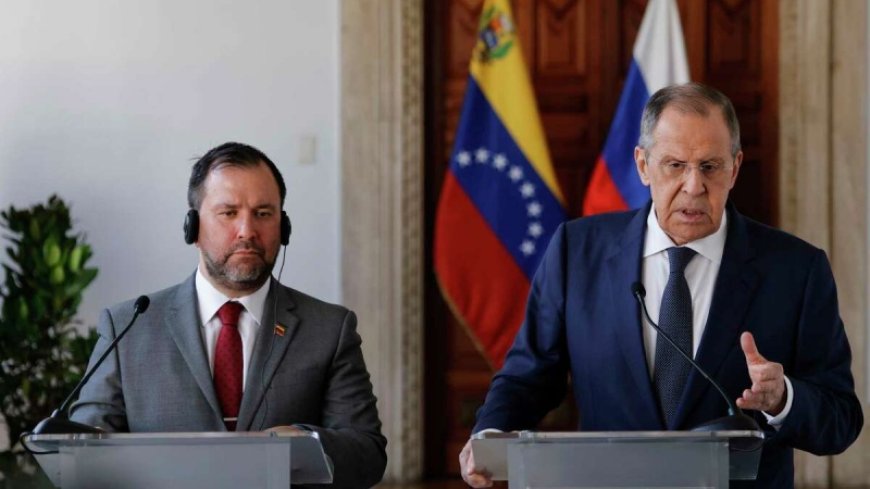Lavrov in Venezuela: we must unite against illegal pressure from the West
Lavrov in Venezuela: we must unite against illegal pressure from the West

MOSCOW-Russian Foreign Minister Sergei Lavrov has invited his Venezuelan counterpart, Iván Gil Pinto, to visit Russia after landing in Caracas as part of his Latin American tour, which runs until Friday.
During a press conference with his Venezuelan counterpart Yván Gil, Lavrov urged on Wednesday to "join forces" against the "blackmail" of Western sanctions. The Russian diplomat also ratified with his local counterpart the right of peoples to self-determination.
“Venezuela, Cuba and Nicaragua are countries that choose their own path,” Lavrov said, according to the official translation, questioning the international sanctions imposed on these nations by the United States.
"We need to join forces to counter blackmail attempts and illegal unilateral pressure from the West" added the diplomat. Lavrov's passage to Caracas - where he had been in February 2020 - is the second stop on his tour in Latin America, started in Brazil, and which will continue through Cuba and Nicaragua.
Venezuela is one of Russia's main allies in the region. President Nicolás Maduro has expressed support for him in Moscow's invasion of Ukraine, although he has supported peace negotiations.
“We discussed the events in Ukraine,” Lavrov said. after the meeting between the foreign ministers and before meeting Maduro. The Russian foreign minister landed in Caracas on Tuesday and was received at Simon Bolívar airport by the Russian ambassador to the country, Sergei Mélik Bagdasarov, and by the Venezuelan representative at Moscow, Jesús Salazar Velásquez, among others.
Lavrov, who flew from Brazil as part of his Latin American tour, assured from Caracas that Moscow appreciates the role that Venezuela plays in the Community of Latin American and Caribbean States (CELAC) to "preserve the identity of the region. “













































